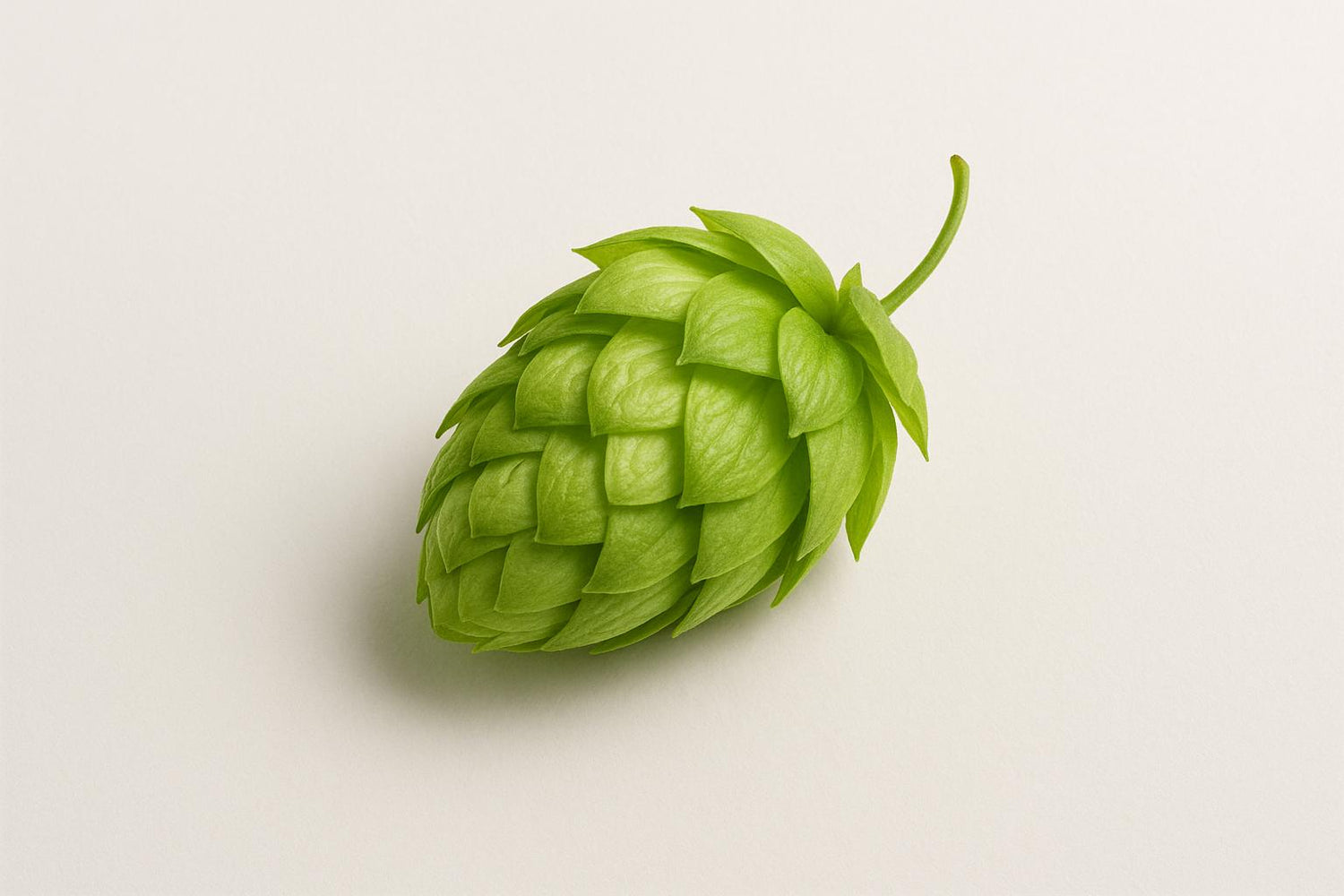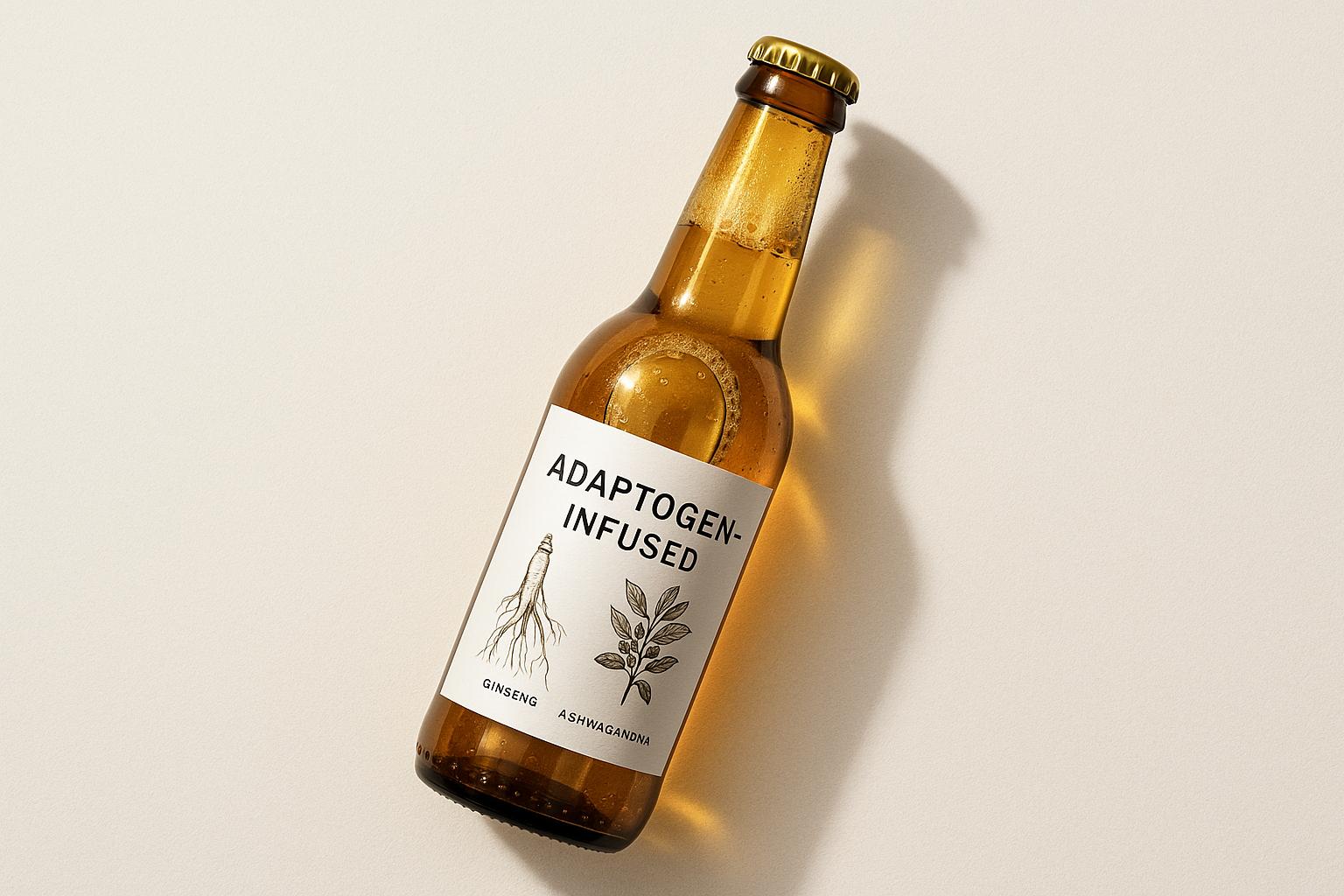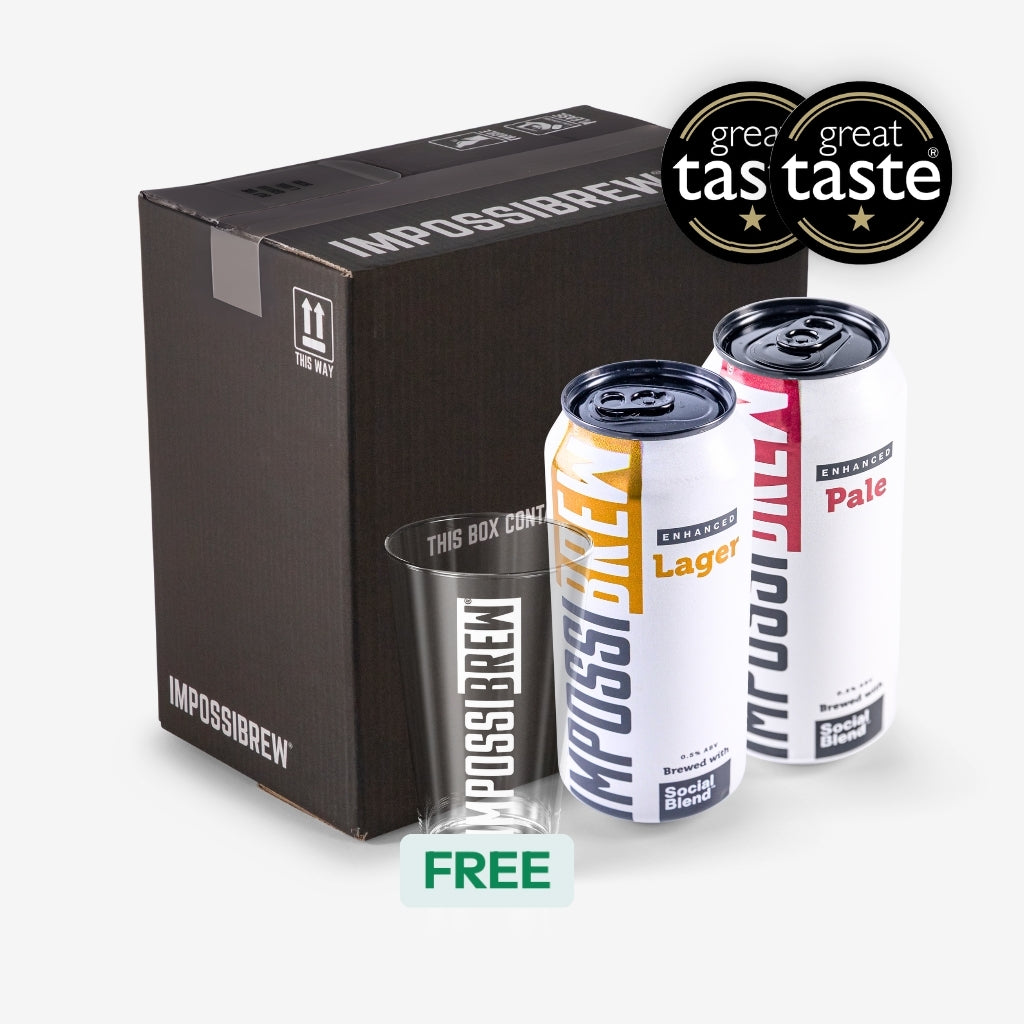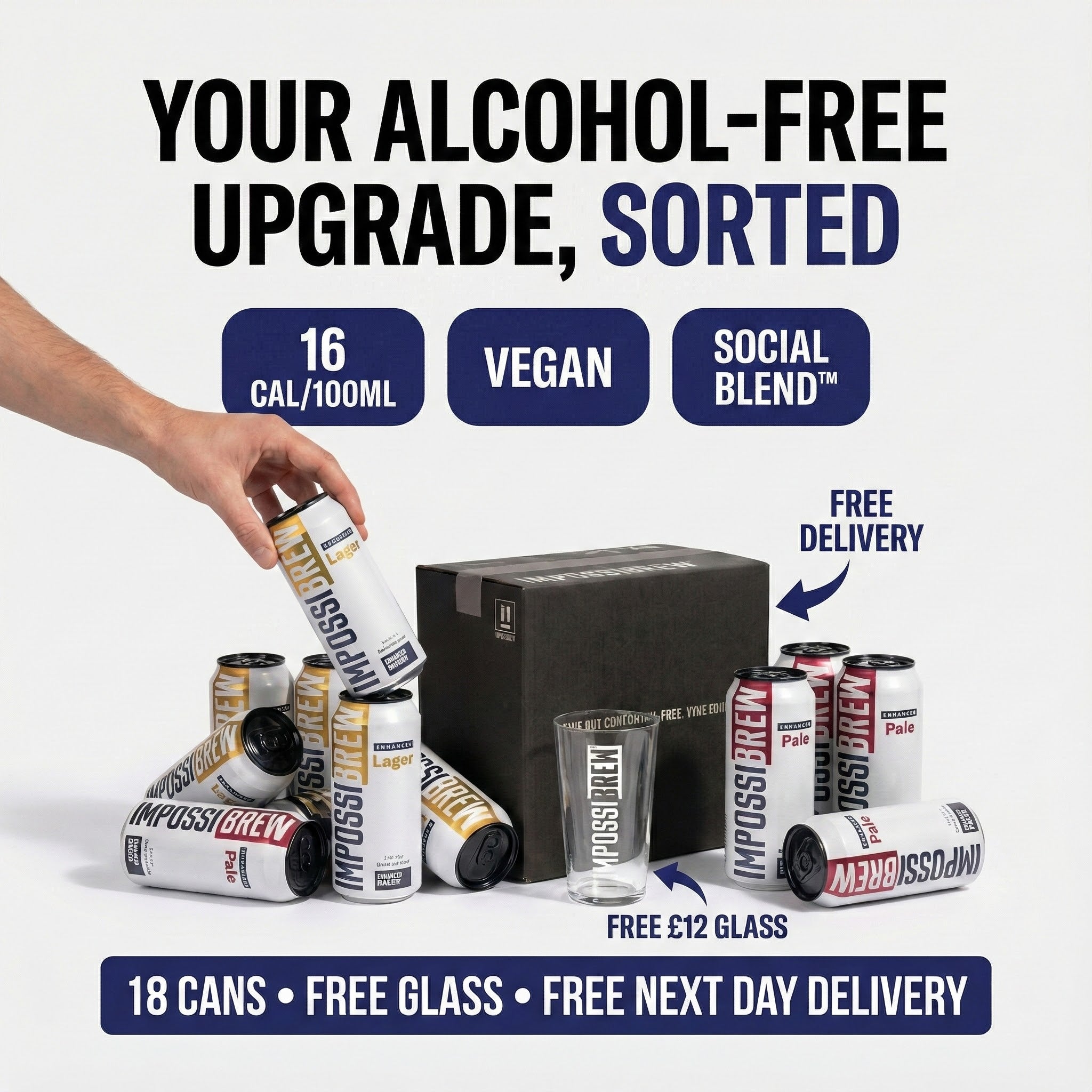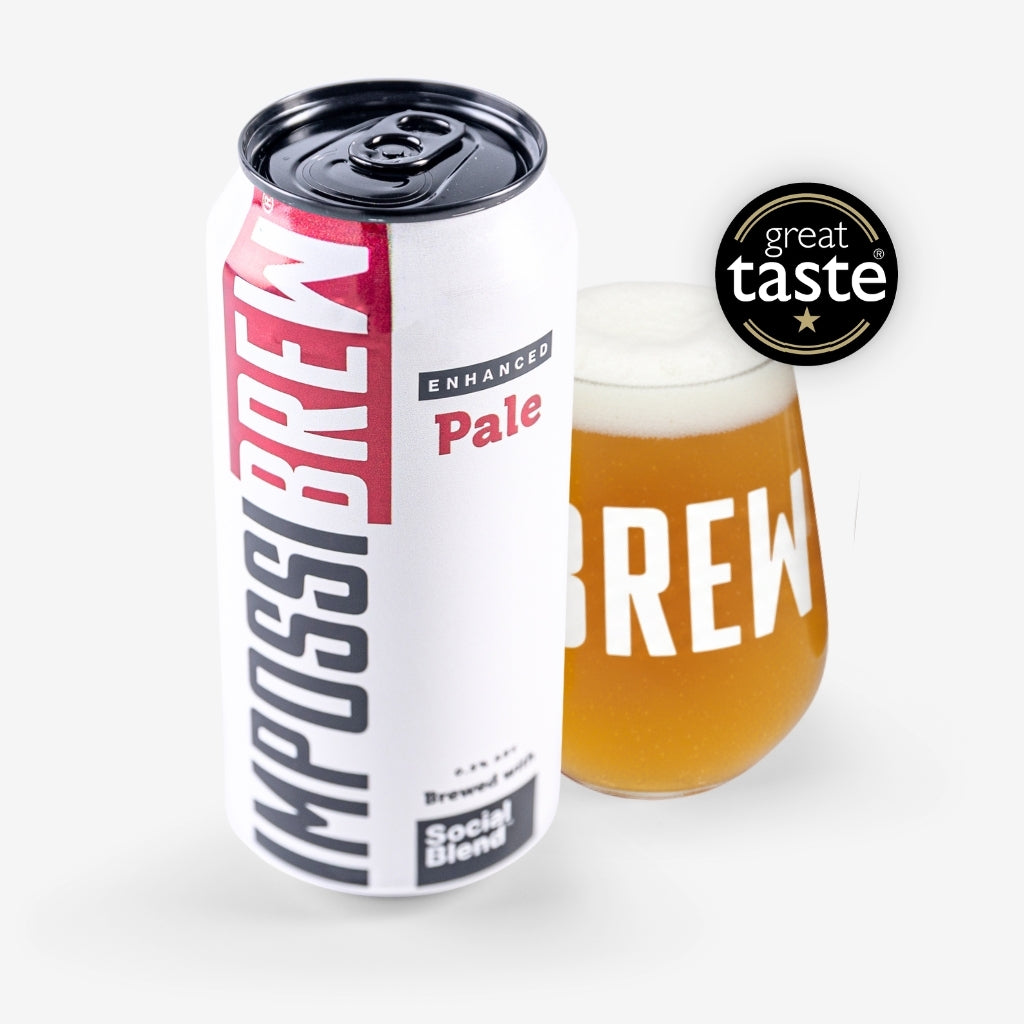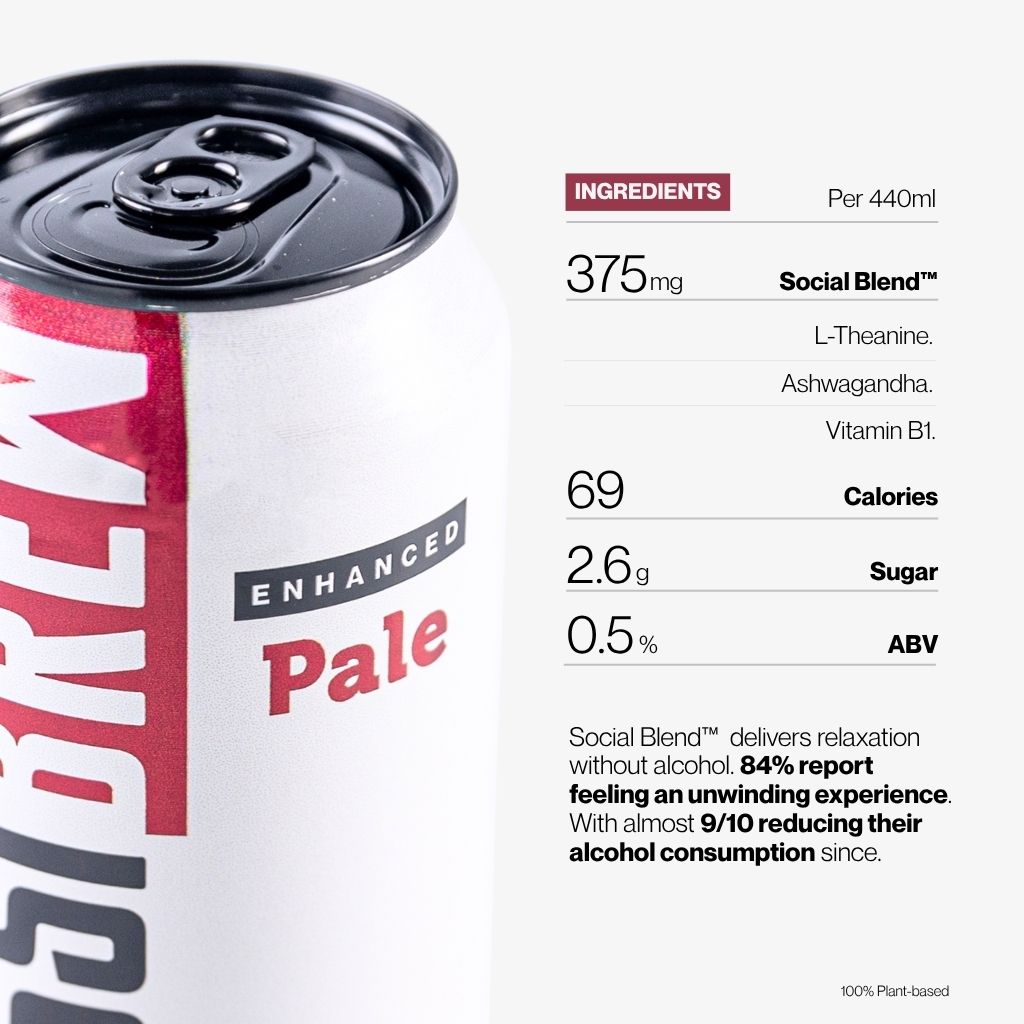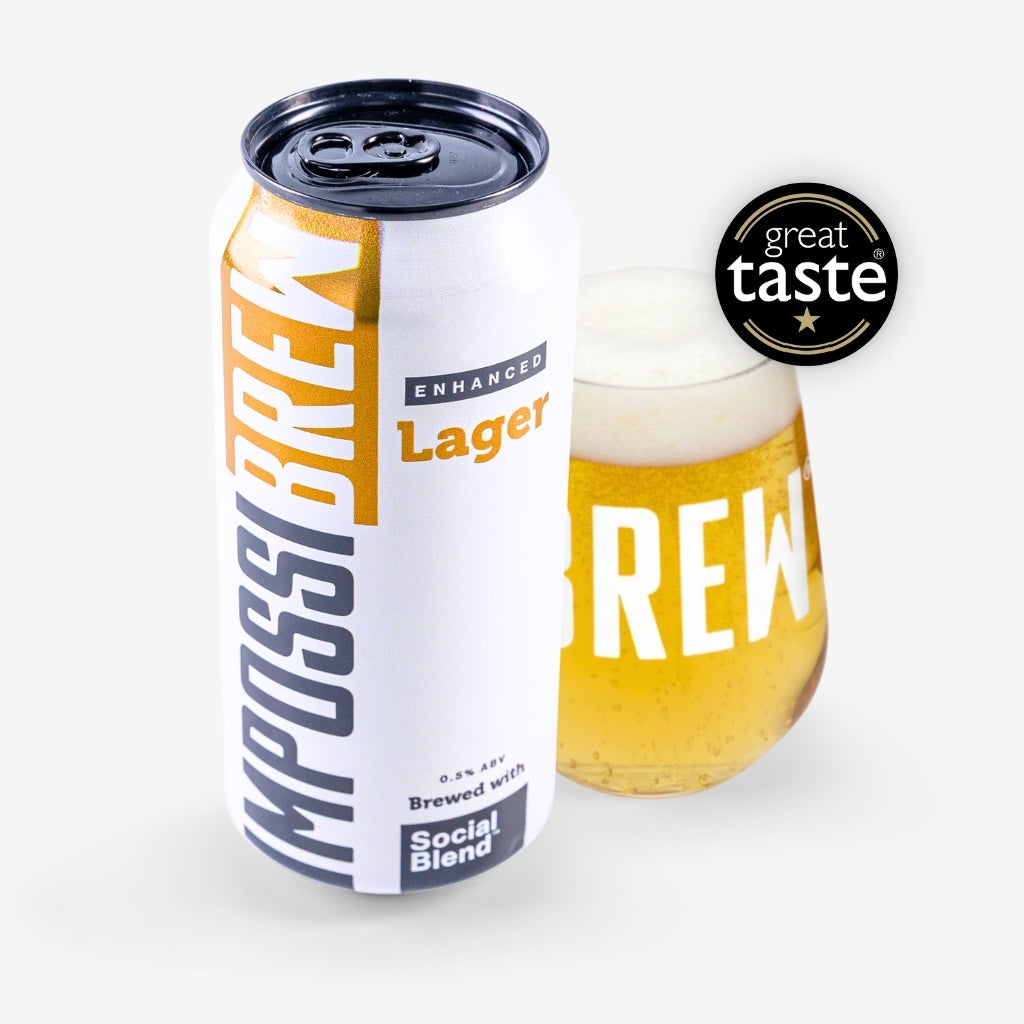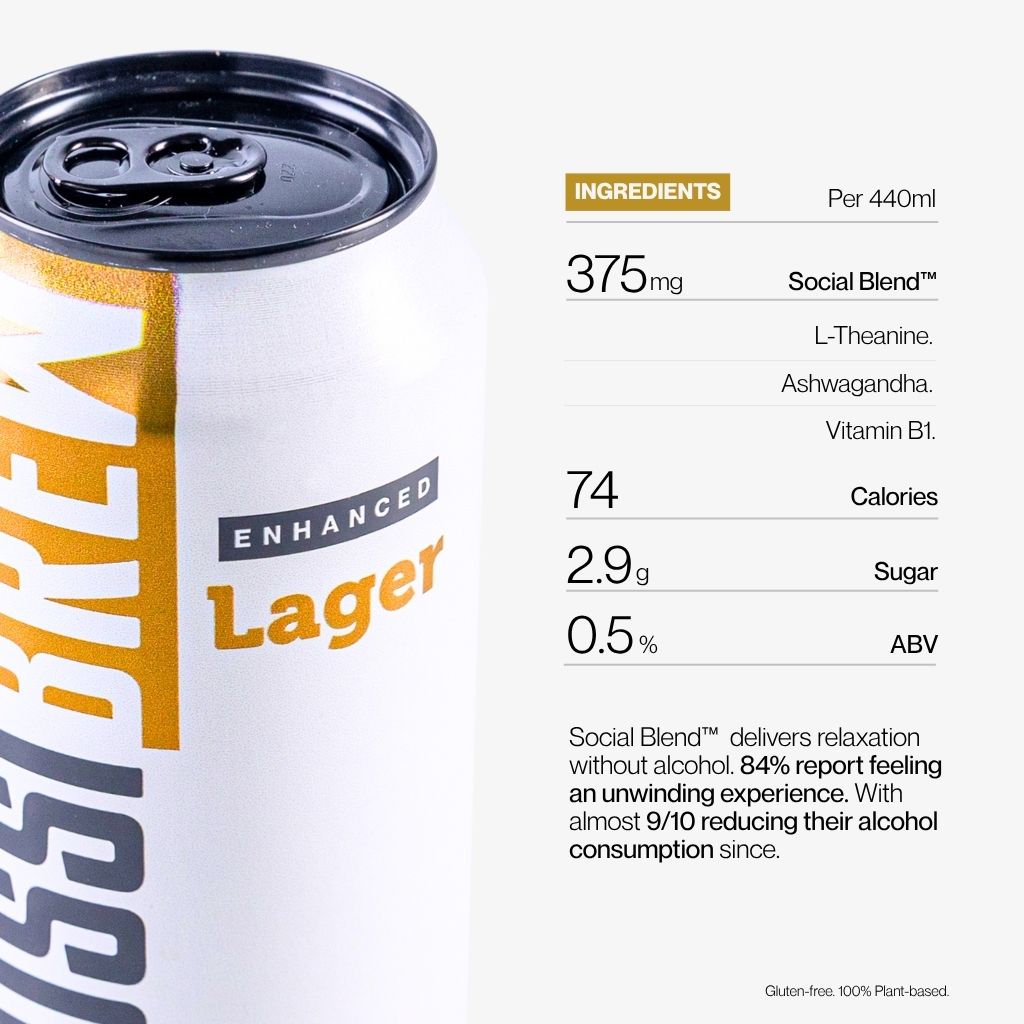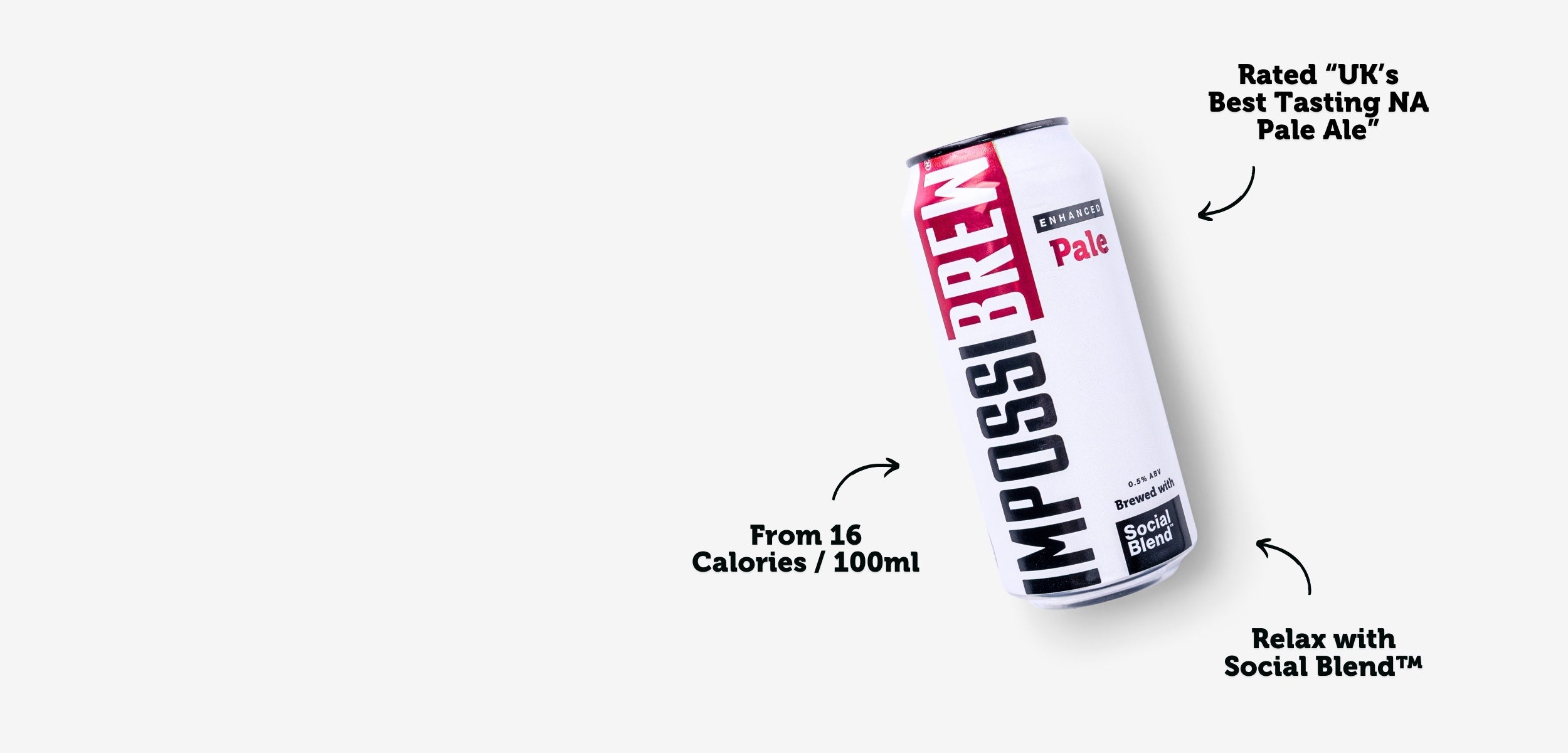Hops are the cornerstone of beer's flavour, delivering bitterness, aroma, and depth. But when it comes to non-alcoholic beers, achieving the same complexity is a challenge. Removing alcohol often strips away key sensory elements, leaving these beers tasting flat or unbalanced. However, hops provide a solution. By using hop oils, acids, and advanced brewing techniques, brewers are working to restore the fruity, floral, and bitter notes lost during dealcoholisation.
Here’s what you need to know:
- Hop compounds like alpha acids and essential oils (e.g., myrcene, humulene, and linalool) are key to beer's flavour.
- Non-alcoholic beer sales are booming, with the global market projected to reach £17.5 billion by 2025.
- Dry hopping and cold storage help preserve hop aromas and minimise off-flavours.
- New methods like biotransformation and supercritical CO2 extraction are improving flavour retention while reducing waste.
The UK market for non-alcoholic beers is growing fast, driven by younger, health-conscious consumers. Breweries like IMPOSSIBREW® are blending hop science with dealcoholisation techniques to create flavourful, low-alcohol options. With innovations in brewing and sustainable practices, hop-derived flavours are transforming the non-alcoholic beer landscape.
Hops in Non-Alcoholic Beer and Beverages
The Science Behind Hop-Derived Flavours
Understanding the chemistry of hops is key to crafting flavourful non-alcoholic beers. Research sheds light on the intricate ways hops shape a beer's sensory experience, even when alcohol is removed.
Key Hop Compounds and Their Sensory Effects
Hops owe their rich flavour to a vast array of compounds - scientists have identified over 3,000 flavour-active molecules that contribute to their aroma and taste [5]. This diversity explains why different hop varieties offer such unique profiles.
Two main categories of hop compounds play a starring role: resins and essential oils [4]. Resins, particularly alpha acids (humulones), are responsible for beer's bitterness. During brewing, these acids transform into iso-alpha acids, which impart that classic bitter edge.
Essential oils, though making up just 0.5–2% of the hop, pack a punch with over 200 compounds that define hops' signature aroma [4]. Key contributors include:
- Terpenes and Terpenoids: These form the backbone of hop essential oils. For instance, myrcene, which can make up 60% of hop oil, is prominent in American hop varieties and delivers citrusy or pine-like aromas [6]. Other terpenes like humulene and caryophyllene add earthy and spicy notes, while farnesene brings woody characteristics. Oxygenated terpene alcohols such as linalool, geraniol, and limonene contribute floral and citrus notes, highly prized in modern craft brewing [5].
- Sulphur Compounds: Found in trace amounts, these can have a significant impact - adding tropical fruit notes or, if mishandled, unwanted aromas [5].
"With hops, you can paint a malty canvas with flavours ranging from earthy spice, to citrusy pine, and even mango and soursop." – Charlotte Cook [5]
These compounds highlight how brewing techniques influence the final flavour profile.
Changes During Brewing
Temperature is a crucial factor in how hop compounds behave during brewing and storage. Studies show that higher temperatures speed up chemical changes. For instance, furanic compounds form 140 times faster at 37°C than at 4°C [7]. Cold storage, therefore, helps preserve the original hop flavours by preventing the formation of aldehydes and furanic compounds, which can mask desirable hop characteristics [7].
This is especially important for non-alcoholic beers. Storage at low temperatures (around 4°C) maintains the beer's chemical profile and keeps hop flavours intact. On the other hand, warmer storage conditions lead to a rise in aldehydes and esters, while reducing the presence of key terpenes [7].
During the brewing process, hop compounds undergo further transformations. Heat-sensitive compounds evaporate or break down during wort boiling, creating new flavour profiles [2]. Yeast fermentation adds another layer of complexity by converting hop-derived volatiles into entirely new compounds, enhancing the beer's overall character [2].
Impact of Hop Addition Methods
The method and timing of hop addition also play a big role in shaping the beer's flavour. Traditional brewing separates hops into two main categories: bittering hops, added early in the boil to maximise bitterness, and aroma hops, added later to preserve delicate aromas [4].
For non-alcoholic beers, dry hopping - adding hops after fermentation - is especially important [4]. This technique helps restore aroma lost during alcohol removal. However, dry hopping has its challenges. Research shows that hops retain only 33–51% of their essential oil content after 24 hours of dry hopping [8], making it crucial to optimise contact time and conditions.
The craft brewing industry has embraced bold hopping practices, with microbreweries using up to 10 times more hops per litre than large-scale breweries - about 100 g of hops per hectolitre of beer [10]. This reflects both consumer demand for intense flavours and the technical hurdles of achieving robust hop character in specialty beer styles.
Storage conditions after hop addition also matter. Studies reveal that canned beers retain hop aromas better than bottled ones, preserving compounds like caryophyllene, myrcene, and humulene during storage [9]. In dry-hopped beers, the loss of these aroma-driven flavours can shift the balance, leaving a sweeter, woody, and herbal profile while diminishing the fruity and floral notes [9].
These findings underline the importance of fine-tuning brewing parameters, storage conditions, and hop addition techniques to preserve the vibrant flavours that hops bring to non-alcoholic beers. By carefully managing these factors, brewers can ensure their beers deliver the full sensory experience hops are known for.
New Approaches in Hop-Derived Flavour Development
The brewing world is embracing fresh methods to enhance hop flavours, especially in non-alcoholic beers. With a growing demand for healthier options that don't compromise on taste, advancements in natural flavour development and environmentally friendly practices are paving the way for rethinking how hops are used. These changes are shaping a new era in brewing.
Natural Flavour Engineering
Biotransformation has emerged as a game-changing approach in creating hop flavours. By using yeast and enzymes, brewers can transform existing hop compounds into new ones, enriching a beer’s aroma and overall flavour. For instance, one brewery specialising in non-alcoholic IPAs faced common challenges like a thin body, muted hop aromas, and lack of ester character after dealcoholisation. They tackled these issues by incorporating hop oils, custom ester replacements, and polyphenol extracts. This combination brought back the beer's aroma, complexity, and mouthfeel, aligning it with the richness expected from a full-strength IPA. Matt Jones, Director of Innovation, explained:
"Recreating the complexity of a full‐strength beer in NoLo brewing requires precision. Combining hop oils with tailored body and ester solutions restores balance, making these beers more enjoyable and true to their intended style." [1]
Additionally, flexible dosing systems now allow brewers to add hop-derived compounds at various production stages. This flexibility enables quick adjustments and targeted flavour improvements. Paired with cutting-edge technologies, these methods are also redefining how flavours are sustainably extracted. [1]
Smart Technologies and Sustainable Practices
The integration of smart technologies with sustainable methods is transforming the way hop flavours are extracted and used. Concentrated hop oils and acids, for example, significantly improve production efficiency by reducing waste while capturing precise flavour compounds. Systems like KalHops exemplify this approach, offering solutions that blend hop oils for aroma, ester replacement, and even ethanol character, helping brewers craft specific flavour profiles.
Late-stage dosing technologies further enhance the process, allowing brewers to tweak hop character after production. This adaptability is particularly useful for keeping up with seasonal trends or shifting consumer preferences. Such innovations have proven essential in addressing the challenges of restoring body and aroma in non-alcoholic beers, ensuring these beverages remain flavourful and satisfying.
Hop-Derived Flavours in Non-Alcoholic Beer Applications
Crafting non-alcoholic beers with hop-derived flavours is no small feat. Brewers must balance consumer expectations for taste with strict UK regulations, all while catering to the growing demand for alcohol-free options. As this market expands, innovative methods are emerging to capture and enhance the essence of hops.
Consumer Preferences and Regulatory Standards
The non-alcoholic beer market in the UK is booming. By 2034, it's projected to hit £1,976.7 million, growing at a steady 6.5% annually from 2024 [11]. This surge isn’t just about numbers - it reflects a shift in lifestyle. Health-conscious consumers are looking for drinks that offer the familiar taste of beer without the alcohol. Whether it’s a casual daytime meet-up, a post-workout refreshment, or a professional gathering, non-alcoholic options are gaining traction. The "Zero-Proof Movement", which encourages cutting back on alcohol, has only added to this momentum.
But taste isn’t the only concern. Regulations play a big role in shaping what goes into these beers. UK law clearly categorises alcohol content:
- Alcohol 'free': Maximum 0.05% ABV
- De-alcoholised: Maximum 0.5% ABV
- Low alcohol: Maximum 1.2% ABV
- Alcoholic: Above 1.2% ABV [12]
Additionally, under Regulation No. 1169/2011, drinks with less than 1.2% alcohol don’t need to display their alcohol content on labels [3]. This creates opportunities for breweries to experiment with hop varieties and brewing methods to produce distinctive flavours while staying compliant.
"The non-alcoholic beer industry is experiencing significant growth as consumers increasingly prioritise health and wellness." – Nandini Roy Choudhury, Client Partner at Future Market Insights [11]
Supporting this trend, Future Market Insights shared that global non-alcoholic beer sales reached $20,524.5 million in 2022, with breweries leading advancements in hop flavour development [11]. These market forces and regulations are driving exciting innovations in the field.
IMPOSSIBREW®: A Case Example
One company making waves in this space is IMPOSSIBREW®. They’ve mastered the art of hop flavour engineering to create non-alcoholic beers that rival their traditional counterparts. By blending time-honoured brewing methods with advanced flavour science, IMPOSSIBREW® has developed beers that not only taste authentic but also deliver a heightened sensory experience.
Take their Enhanced Lager, for instance. With a crisp, citrusy finish and less than 0.5% ABV, it captures the bitterness and aroma of classic lagers while introducing science-backed ingredients for an added sensory twist. Meanwhile, their Enhanced Hazy Pale boasts tropical, fruity notes and a smooth texture, replicating the depth of craft pale ales.
Research shows that the type, quantity, and form of hops significantly influence the quality of non-alcoholic beers [2]. IMPOSSIBREW® addresses the challenges of dealcoholisation by combining traditional hop techniques with specialised ingredients to restore the sensory elements often lost in the process.
Adhering to UK regulations for de-alcoholised beverages, IMPOSSIBREW® ensures their products are low-calorie, vegan-friendly, and, in the case of their lager, gluten-free. With prices starting at just £1.97 per can, they’re making premium non-alcoholic beer accessible to a wider audience while educating consumers about their unique approach.
Comparing Methods for Hop-Derived Flavour Development
Brewers today are leveraging a mix of traditional and modern techniques to unlock the full potential of hop flavours. For those crafting non-alcoholic beers, understanding these methods is key to achieving rich, hop-forward profiles without compromising on taste or environmental considerations.
Traditional methods, such as distillation using organic solvents, have been the backbone of hop essential oil extraction for centuries. While effective, these approaches often leave behind solvent residues and raise environmental concerns [13].
Modern methods, however, have taken a more refined approach. Techniques like supercritical CO2 extraction use safer solvents such as water and carbon dioxide, eliminating the issue of residual organic solvents. Supercritical CO2 extraction, in particular, has become a gold standard in the industry, with over 90% of supercritical fluid extractions relying on CO2 [13]. This method is especially suited to non-alcoholic beers, where purity and precision are paramount.
Sustainability is another driving force behind the evolution of these methods. Practices like reusing spent hops from dry-hopping have gained traction. While dry-hopping leads to some losses, spent hops still hold brewing value, making them an excellent choice for reducing waste. This aligns with Sustainable Development Goal 12.3, which aims to halve food waste by 2030 [10]. These innovations are shaping the future of hop extraction, particularly in non-alcoholic beer production.
Comparison Table: Extraction Methods
| Method | Flavour Authenticity | Cost Efficiency | Environmental Impact | Solvent Residues | Compound Selectivity | Best Application |
|---|---|---|---|---|---|---|
| Traditional Distillation | High for essential oils | Moderate | Higher due to solvents | Present | Limited to volatile compounds | Essential oil extraction |
| Supercritical CO2 Extraction | Excellent | High (despite costs) | Low | None | Excellent for all compounds | Premium non-alcoholic beers |
| Conventional Solvent Extraction | Good | Low initial cost | Moderate to high | Present | Varies with solvent | Budget-conscious production |
| Spent Hop Reuse | Moderate | Very high | Very low | Minimal | Limited but sustainable | Cost-effective bittering |
| Water-Based Extraction | Moderate | High | Very low | None | Poor for polyphenols alone | Eco-friendly applications |
| Methanol/Ethanol-Water Mix | Good for polyphenols | Moderate | Moderate | Minimal | Excellent for polyphenols | Antioxidant-rich extracts |
This table highlights the trade-offs between flavour quality, cost, and sustainability. For non-alcoholic beers, where hops play a crucial role in compensating for the absence of alcohol-derived flavours, the choice of extraction method is pivotal. Operating conditions like temperature and pressure also have a direct impact on the extract’s composition, making precision an essential factor [13].
Advanced analytical tools such as GC-MS and HPLC have transformed how brewers identify and measure hop compounds. Techniques like solid-phase microextraction and accelerated solvent extraction further enhance control over aromatic profiles and bitter acid levels [13]. For example, methanol or ethanol-water mixes outperform organic solvents for polyphenol extraction, a critical consideration for non-alcoholic beer producers aiming to maximise hop character [13].
With climate change impacting hop yields [14], methods like supercritical fluid extraction have become even more valuable. They ensure optimal recovery of both volatile and non-volatile compounds, helping brewers adapt to a changing agricultural landscape [13].
sbb-itb-a752bf8
Future of Hop-Derived Flavours in Non-Alcoholic Beer
The future of hop-derived flavours in non-alcoholic beer is looking bright, fuelled by advancements in science and shifting consumer habits in the UK. The NOLO drinks market in the UK is set to hit £432 million by 2027, with sales more than doubling between 2018 and 2023, while volume sales saw an impressive 88.6% growth during that period [18].
Consumer trends are reshaping the industry, with young adults leading the charge. In fact, 64% of 18–24-year-olds in the UK now enjoy NOLO beverages [18]. However, challenges remain - particularly in creating flavours that captivate drinkers. These shifting preferences are driving brewers to innovate and refine hop flavour retention techniques.
Research has revealed that ethanol and carbonation levels play a key role in retaining hop volatiles, while specific combinations of hop compounds can help replicate the mouthfeel typically provided by alcohol [15]. Brewers are combining advanced analytical tools with sensory evaluations to craft precise hop profiles. Meanwhile, new microbial techniques are being explored for non-alcoholic beer production [2], alongside brewing methods aimed at recreating the fruity notes that consumers expect [3]. Together, these efforts are pushing technical boundaries while also addressing sustainability.
Sustainability is fast becoming a competitive edge in the brewing world. Initiatives like Fairtrade-certified supply chains and regenerative farming practices are setting new standards for sourcing raw ingredients [16].
"What we love about this supply chain and highlighting fonio's unique role in sustainable brewing is that it seeks to include the grain and the people who grow it in a fair way." – Alan Mahon, Brewgooder founder [16]
By tackling environmental concerns alongside flavour retention challenges, these sustainable approaches complement the industry’s push for flavour innovation.
The regulatory and consumer landscape offers both opportunities and hurdles. For example, 85% of UK venues now offer at least one NOLO option [18], but concerns around pricing and sugar content persist [17]. Moreover, 73% of category drinkers prioritise an authentic recipe over the beer's country of origin, though misleading geographical claims deter more than a third of them [17]. As regulations and consumer preferences continue to evolve, constant innovation in flavour remains essential.
Flavour breakthroughs focusing on citrus and fruity profiles are particularly important for attracting younger drinkers and overcoming taste barriers [17]. Globally, the non-alcoholic beer market - worth $16.65 billion in 2021 - is expected to grow to $23.27 billion by 2025 [2].
For UK brewers, the road ahead involves addressing consumer concerns such as quality perceptions, nutritional benefits, and diverse flavour options. Success will depend on blending cutting-edge hop science with transparent, sustainable practices and delivering authentic, exciting flavour experiences.
FAQs
How do hop-derived flavours improve the taste of non-alcoholic beers?
The Role of Hops in Non-Alcoholic Beers
Scientific studies highlight that hop-derived flavours are crucial in improving the taste of non-alcoholic beers. They contribute aromatic depth and enhance mouthfeel, helping to replicate the sensory qualities typically associated with traditional alcoholic beers. This is especially valuable since non-alcoholic options can sometimes fall short in flavour complexity.
By incorporating natural hop extracts and terpene-rich compounds, brewers can significantly boost the aroma and taste of these beers. This approach helps close the flavour gap, delivering a more satisfying and enjoyable experience for beer lovers who prefer or require alcohol-free options.
How are hop flavours preserved and enhanced in non-alcoholic beers?
New Techniques for Capturing Hop Flavours in Non-Alcoholic Beers
Brewers are now tapping into cutting-edge methods to preserve and amplify hop flavours in non-alcoholic beers. One approach involves using specially engineered yeast strains that naturally generate hop-like aroma compounds. This means brewers can craft bold, flavourful beers without relying entirely on traditional aroma hops.
Another standout method is membrane filtration. This process carefully removes alcohol while keeping the delicate aromatic compounds intact, ensuring the beer retains its characteristic flavour. On top of that, many brewers are turning to hop oils to boost aroma and taste. However, these oils demand precise handling to prevent oxidation, which can lead to unwanted off-flavours.
Together, these techniques are helping non-alcoholic beers bring the rich, hop-forward character of their traditional counterparts to life, offering drinkers a full and enjoyable sensory experience.
Why is sustainability important in creating hop-derived flavours, and what steps are breweries taking to protect the environment?
Sustainability in Hop-Derived Flavours
The production of hop-derived flavours carries environmental challenges that can't be ignored. Hop farming and brewing often demand large amounts of water, significant energy usage, and may lead to chemical runoff. Tackling these issues is key to lessening the industry's environmental impact.
Breweries are stepping up with eco-conscious practices to address these concerns. They're working to conserve water, promoting sustainable farming techniques, and opting for recyclable or biodegradable packaging materials. These initiatives not only help safeguard the planet but also resonate with consumers who are increasingly seeking environmentally responsible products.

